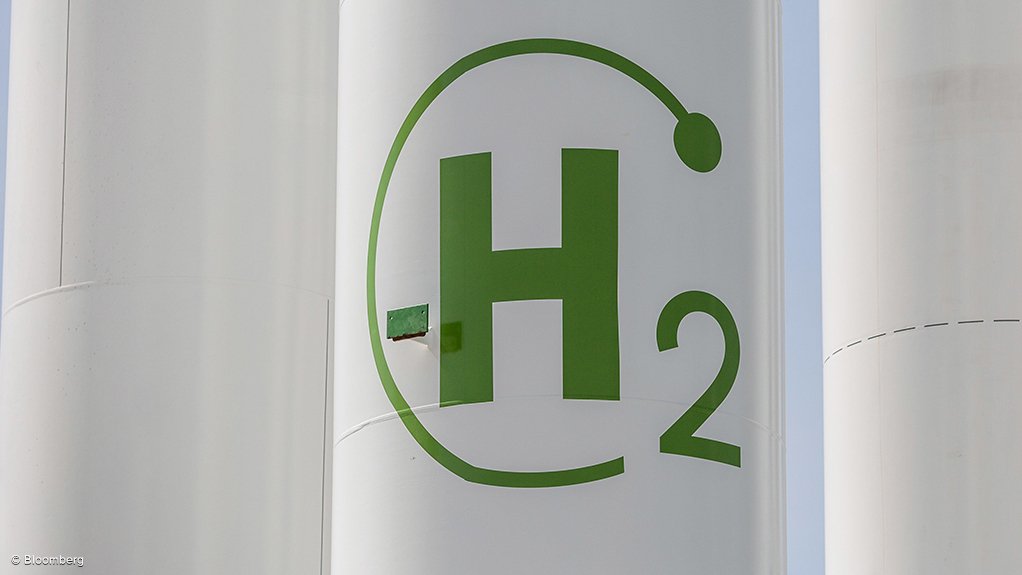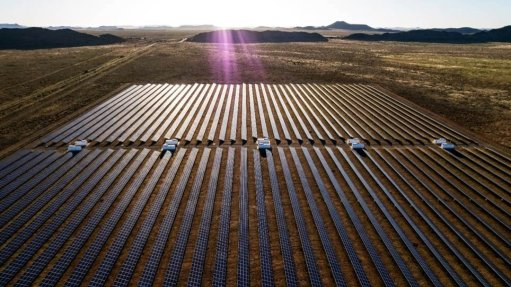South Africa must make green hydrogen investment decision in next 12 months
For South Africa to take full advantage of the opportunities presented by the growing global demand for green hydrogen, management consulting firm McKinsey managing partner of South Africa Kannan Lakmeeharan believes swift action is needed to move from feasibility to investment decisions.
Speaking to Engineering News on March 7 at a McKinsey-hosted event focusing on green hydrogen, which ran alongside the African Energy Indaba, in Cape Town, he said that derisking green hydrogen projects by securing some form of uptake was crucial.
Moreover, government support in building relationships with offtakers such as Europe and Asia would also be essential for the success of these projects.
McKinsey is part of the technical advisory group to the Hydrogen Council, a global initiative comprising major players in the energy, transportation and industrial sectors that aims to accelerate the development and deployment of hydrogen solutions globally.
Lakmeeharan explained that consortiums needed to find the right partnerships quickly to prevent other countries from “overtaking South Africa in the queue”. While some projects have already started to cater to domestic needs, concrete decisions must be made to capitalise on the export potential, he added.
He believes public–private partnerships are the key to moving forward, and that, while progress has been made, decision-making in the next six to twelve months will be crucial for the success of the hydrogen economy in Africa.
McKinsey, like many others, has identified green hydrogen as a crucial player in achieving net-zero emissions targets worldwide. In particular, the firm believes Africa has the potential to play a significant role in the green hydrogen economy owing to its abundant renewable energy resources – which are an essential component for producing hydrogen sustainably.
To realise this potential, Lakmeeharan suggested that it would be important to enter into agreements with partners and potential investors, carefully manage risks and not delay decisive entry into the market any further.
He said the potential for cumulative investment in the hydrogen industry in Africa would amount to between $500-billion and $1-trillion by 2050. This investment could lead to significant job opportunities and foreign direct investment in the region, provided that Africa carefully navigates the uncertainties and challenges of the hydrogen economy.
Although the potential benefits of hydrogen are great, Lakmeeharan explained, there were still uncertainties and challenges that needed to be addressed. Reducing the cost of producing hydrogen is crucial, he noted, as is ensuring safety and minimising emissions.
“Technical feasibility is also a key consideration, particularly for industries that could potentially use hydrogen as a fuel source, such as electric power generation and green steel production,” he said.
Lakmeeharan said Africa had made significant strides in recent years in adopting renewable energy sources and promoting sustainable development. By leveraging its renewable energy resources and strategic partnerships with industry players, Africa’s role in supplying green hydrogen would provide a much-needed boost to the continent’s economies.
“As the world continues to grapple with the challenges of reducing greenhouse-gas emissions and achieving a sustainable future, the role of hydrogen will become increasingly important.
“By carefully navigating the uncertainties and challenges of the hydrogen economy and capitalising on its potential, Africa could position itself as a global leader in this crucial area,” Lakmeeharan said, noting that South Africa had a crucial role to play among key countries such as Egypt, Morocco, Namibia and Mauritania.
He said it was critical, however, to clearly delineate the role that green hydrogen would play in meeting local energy requirements and determine how to support the ecosystem that would enable its growth, before exporting it abroad.
“Forming partnerships to develop and negotiate offtake agreements with potential buyers is also critical, particularly in Europe and Asia, where demand for green hydrogen is expected to be high. Governments must set the right policies and regulations to incentivise investment and support the building of technical and local capacity resources to help facilitate the ramping up of green hydrogen production,” he said.
South Africa's Northern Cape is rich in renewable energy resources, particularly in terms of wind and solar energy. However, the region's energy grid is currently constrained, making it difficult for these resources to be fully used to meet local energy needs.
“As a result, there is an opportunity to explore the potential of using these stranded renewable energy resources for green hydrogen and ammonia exports,” Lakmeeharan explained.
This would not only attract foreign direct investment but also generate income for the region. While green hydrogen might not yet be cost-effective enough to replace traditional energy sources, Lakmeeharan said it could still be used in offtake situations to help lower costs until it eventually played a more significant role in electricity supply.
"It's important to first figure out how to support your own energy needs, but we shouldn't ignore the potential benefits of using stranded renewable resources. There's a lot of opportunity here, starting with the priority of meeting current electricity needs with renewables.
“Then we can explore the possibility of leveraging stranded resources to bring green hydrogen to a cost-effective level, making it an essential component of our electricity supply,” he said.
According to Lakmeeharan, Africa could supply between 30-million and 60-million tonnes of hydrogen or hydrogen derivatives, such as ammonia and methanol, by 2050. This would include sustainable aviation fuel, among other products.
South Africa was not currently the most cost-effective or lowest-emission potential green hydrogen supplier to Europe or Asia – given its distance from those regions compared with Egypt or Morocco – but it was still within the top ten, Lakmeeharan said, noting that geopolitics may also play a role in determining who becomes a major supplier to which region.
"If you want to protect your supply chain, you need to have a diversified supplier base. This is where Africa can play an important role. Direct green hydrogen is needed, and countries like South Africa and Namibia have the renewable energy resources to produce hydrogen derivatives like ammonia in a very efficient way,” Lakmeeharan said.
While North Africa and the Middle East may be closer to Europe for direct hydrogen pipelines, Southern Africa still has competitive advantages in producing hydrogen derivatives for export to Europe and Asia.
Chile and Australia are among the other countries that Southern Africa may compete against to supply hydrogen to Asia, which further highlights the need to move quickly.
Article Enquiry
Email Article
Save Article
Feedback
To advertise email advertising@creamermedia.co.za or click here
Press Office
Announcements
What's On
Subscribe to improve your user experience...
Option 1 (equivalent of R125 a month):
Receive a weekly copy of Creamer Media's Engineering News & Mining Weekly magazine
(print copy for those in South Africa and e-magazine for those outside of South Africa)
Receive daily email newsletters
Access to full search results
Access archive of magazine back copies
Access to Projects in Progress
Access to ONE Research Report of your choice in PDF format
Option 2 (equivalent of R375 a month):
All benefits from Option 1
PLUS
Access to Creamer Media's Research Channel Africa for ALL Research Reports, in PDF format, on various industrial and mining sectors
including Electricity; Water; Energy Transition; Hydrogen; Roads, Rail and Ports; Coal; Gold; Platinum; Battery Metals; etc.
Already a subscriber?
Forgotten your password?
Receive weekly copy of Creamer Media's Engineering News & Mining Weekly magazine (print copy for those in South Africa and e-magazine for those outside of South Africa)
➕
Recieve daily email newsletters
➕
Access to full search results
➕
Access archive of magazine back copies
➕
Access to Projects in Progress
➕
Access to ONE Research Report of your choice in PDF format
RESEARCH CHANNEL AFRICA
R4500 (equivalent of R375 a month)
SUBSCRIBEAll benefits from Option 1
➕
Access to Creamer Media's Research Channel Africa for ALL Research Reports on various industrial and mining sectors, in PDF format, including on:
Electricity
➕
Water
➕
Energy Transition
➕
Hydrogen
➕
Roads, Rail and Ports
➕
Coal
➕
Gold
➕
Platinum
➕
Battery Metals
➕
etc.
Receive all benefits from Option 1 or Option 2 delivered to numerous people at your company
➕
Multiple User names and Passwords for simultaneous log-ins
➕
Intranet integration access to all in your organisation





















